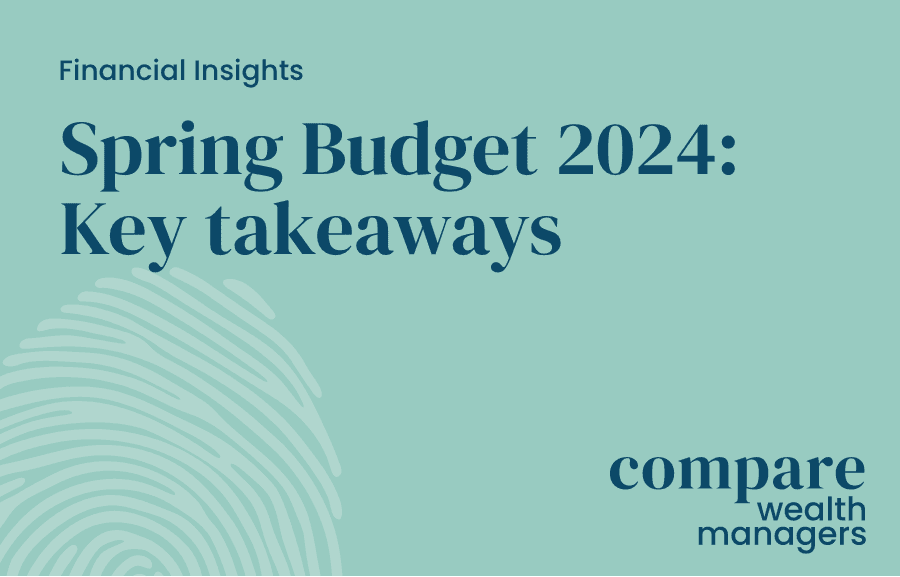UK Chancellor Rachel Reeves presented Labour's first Budget in 14 years today. The recently announced Autumn Budget introduces a variety of financial changes that could significantly impact individuals, investors, and business owners. In this breakdown, we highlight the most important aspects of the budget, analyse the potential effects on various financial stakeholders, and discuss why seeking advice from a professional adviser may be a wise decision.
The Autumn Budget 2024 has been designed to respond to current economic pressures, including concerns about inflation and an unpredictable global financial climate. It introduces significant changes aimed at addressing the needs of the public sector, personal taxation, and business incentives. The budget prioritises stabilising the economy and promoting growth.
Key Highlights of the Autumn Budget
- Personal Tax Adjustments
A significant increase in Capital Gains Tax (CGT) was one of the central points in the budget, raising concerns for individual investors. The CGT increase aims to boost government revenue and impacts anyone who has made gains from investments or the sale of properties that are not their main residence. Jason Hollands from Evelyn Partners emphasised the importance of ISAs in this context, noting that they remain unaffected by CGT changes. This makes ISAs a valuable option for investors looking to minimize their tax exposure on returns.
- Corporation Tax and Business Reliefs
For businesses, the Autumn Budget presented a mixed outlook. The Corporation Tax rate remains at the recently increased level; however, there has been a rise in investment allowances, particularly benefiting small and medium-sized enterprises (SMEs). This measure is intended to encourage reinvestment and stimulate economic growth at grassroots levels. Additionally, there are modest increases in Research and Development (R&D) tax credits designed to encourage innovation in essential industries, which should be a positive development for technology and science-driven sectors.
- Inheritance Tax (IHT)
The Chancellor has decided to freeze the Inheritance Tax threshold once again, which is likely to impact more estates as property values continue to rise. This change raises concerns that an increasing number of families will fall into the IHT bracket, potentially placing additional financial pressure on middle-income earners in the UK. Brooks Macdonald emphasizes that this situation may prompt individuals to explore tax-efficient strategies to preserve wealth for future generations, such as establishing trusts or making lifetime gifts.
- Investments and Green Initiatives
Green investment remains a priority, with the budget extending incentives for renewable energy projects and environmentally sustainable businesses. These changes reflect the government’s ongoing commitment to the net-zero target, indicating that environmentally conscious investments may continue to attract favourable tax treatment in the coming years.
What This Means for Investors
Investors should pay close attention to changes in Capital Gains Tax (CGT) and the importance of retaining ISA tax shelters. The rise in CGT can eat into the profitability of traditional investment strategies, especially for those investing in assets outside of an ISA. According to Quilter Cheviot, it is essential for investors to consider strategies that can help mitigate these tax increases, and ISAs offer a reliable approach to achieve this. Additionally, with the budget's focus on green initiatives, investors might find opportunities in sustainable sectors increasingly attractive, especially as the government continues to support businesses that prioritize renewable energy and environmental solutions.
Implications for Business Owners
For UK business owners, particularly those leading small and medium-sized enterprises (SMEs), the Autumn Budget presents both challenges and opportunities. While the high Corporation Tax rate remains a concern, the improved investment allowances provide an opportunity to reinvest profits for business growth and innovation strategically. As Evelyn Partners points out, R&D tax credits could be especially beneficial for businesses looking to expand into technological or scientific developments.
Moreover, with the cost of employee benefits on the rise, business owners may need to reconsider how to maintain competitive compensation packages while managing tax efficiency. Exploring tax relief opportunities, such as employee share schemes, could prove beneficial for retention and overall growth in a high-tax environment.
The Importance of Professional Advice
Navigating the complexities of the Autumn Budget can feel overwhelming, and it’s understandable to seek clarity in these challenging times. Whether you are an investor looking to minimise CGT exposure, a business owner aiming to make the most of R&D credits, or someone facing potential inheritance tax implications, know that you don’t have to face this alone. A financial adviser can provide tailored advice to help you optimise your position under the new budget.
These professionals can help evaluate tax-efficient options, identify suitable investments, and guide business owners in balancing tax obligations with growth goals. As Saltus points out, proactive financial planning is essential in a landscape where tax policies are continuously evolving. By working with an adviser, you can gain peace of mind, stay informed about changes, and develop a strategy that truly aligns with your aspirations. There are resources available to help you achieve your goals.
The Autumn Budget 2024 has introduced changes that demand attention from UK investors and business owners. With higher CGT rates, corporate tax pressures, and an increased focus on green investments, individuals and businesses alike must consider new strategies to optimise their financial positions. Consulting a professional financial adviser is more important than ever, as they can offer the insight and expertise needed to navigate this evolving financial landscape successfully.




